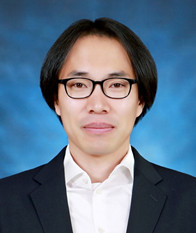Department of Philosophy

Department of Philosophy
We are suffering from a pandemic crisis. Like the name of the disease suggests, COVID-19 started last year. It will soon be a year since its outbreak. Every day, there are many new confirmed cases and the total number of reported infections rises continually all around the world. Unfortunately, we cannot predict when this crisis will end.
We are currently fighting the new coronavirus in two different fields. On the one hand, scientists try to develop cures and vaccines in their laboratories. On the other hand, every human being is practicing social distancing in the streets. I, as well as others, really want to contribute to this fight, because we hope that it comes to an end as soon as possible and that we may meet our families and friends again without the potential risk of infecting them.
I am a professor of Contemporary European philosophy at Ewha Woman University in Seoul, Korea. So, I am a kind of scientist. But there is nothing I can do to contribute to the development of cures and vaccines, because my research is not related to the human body (material dimension), but only to the mind (spiritual dimension). However, I can assist in our fight against COVID-19 in the second field.
I want to talk about the lecture called “Existentialism is a Humanism” which was given by French existentialist Jean-Paul Sartre on the 29th of October, 1945. As we know, the Second World War in Europe ended on the 8th of May and the atomic bomb was dropped on Japan on the 15th of August 1945. So, the lecture was given about two months after the greatest global devastation in human history. At that time, many people despaired of the human race. What gave them hope was Sartre’s lecture. I believe that it also can help us to defeat the coronavirus.
In his lecture, Sartre put emphasis on human subjectivity, which means that human beings are so free that they can make any choice they want, insofar as they are responsible for their choices. For example, some people choose to wear masks; others may choose not to do so. Looking at it this way, the concept of subjectivity does not help us to slow down the epidemic of COVID-19, but rather to spread it. Yet, interestingly, Sartre claimed that the responsibilities taken by them are not only applied to themselves, but to the entire human race. The reason for his claim was that the choice of each human being creates a certain image of the human being. It means that the choice of an individual is inseparably connected to the whole human race. This connection was not clearly visible nor easily understandable, even though Sartre gave some examples to illustrate it.
However, these days, we sense this Sartrean connection all around us in our society, while we practice social distancing. As we know, it is not easy for us to practice social distancing, because we, as human beings, are social animals. We need our societies and miss our relationships and friendships. So, somebody can believe that it would be ok if she or he alone were to choose not to practice social distancing. Then, as we have seen this year, an infected person can cause a new cluster of infections and so put all human beings in danger.
I think that a pandemic crisis clearly shows the inextricable connection between an individual’s choice and the entire human race. This connection reminds us of our responsibility for the people around us and for the whole human race. When we feel this total responsibility, we are better motivated to practice social distancing and might finally have a chance to win our fight against COVID-19. Sartre would say that this victory is based on human subjectivity, which lies in everybody’s heart.

